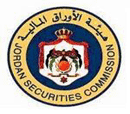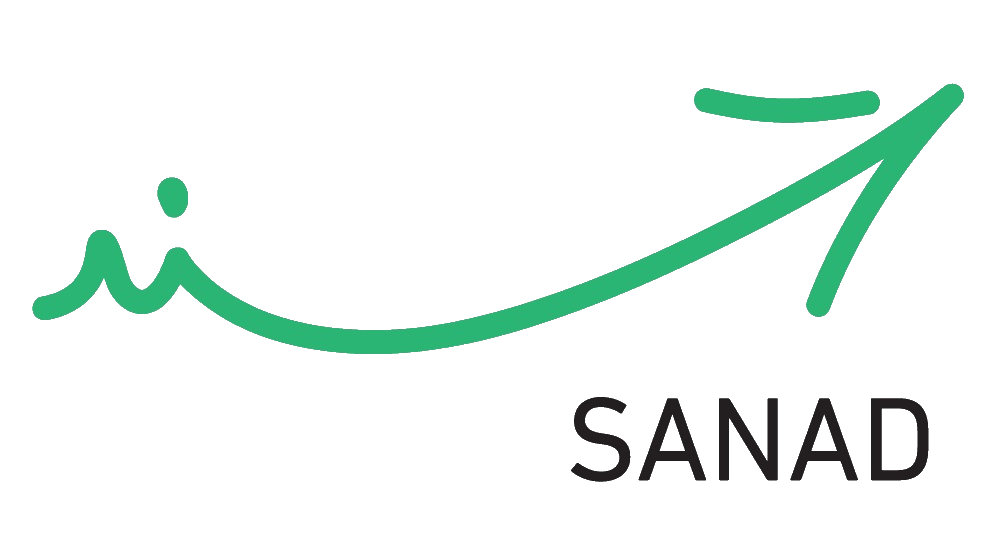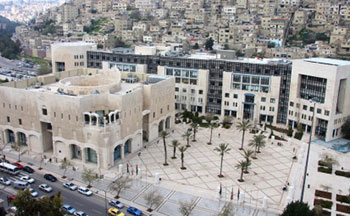 Jordan Securities Commission
Jordan Securities Commission
Jordan Securities Commission

General Information
The establishment of public shareholding companies began in the early thirties, including three companies: Arab Bank, Jordan Tobacco and Cigarettes Company and Jordan Electric Power Company. Ever since, the Jordanian public have been subscribing and dealing in the shares of these companies. In 1978 there were (66) public shareholding company. The first corporate bond was issued in the early sixties.
In the absence of an organized Trading Market in Securities, the dealing thereof was handled by non-specialized offices or the so-called in the Literature on Financial Markets; the unorganized Market. An organized Market was a necessity since the number of public shareholding companies increased, the government issuance of public debt instruments expanded and the successive development plans called for such a Market. This was followed by considerable efforts and several studies, which resulted in the establishment of the Amman Financial Market pursuant to the Securities Law No. (31) for the year 1976.
The Amman Financial Market started its operations as an organized Market in Securities on January 1st.1978. Its main objectives included developing national savings through investing in securities and directing savings to serve the national economy as well as regulating and monitoring the issuance of securities and dealing therein in a manner that ensures the soundness, easiness and swiftness of such dealing. The Amman Financial Market two main roles included acting as a Regulator and as a Stock Exchange in the capital market.
Since its inception, the Amman Financial Market has taken significant steps in the local capital market and achieved great progress in its set for objectives, making it in a prominent position among emerging markets in the region and in the world. In May 1997, the Securities Law No. (23) for the year 1997, which began with restructuring and reforming the national capital market, was issued. According to the Law, the three established institutions replaced the Amman Financial Market. The supervisory and regulatory role was separated from the executive role in the national capital market.
Concerning the quantitative development in the Securities Market, market capitalization increased from JD 286 million in 1978 to JD 17.339 billion by the end of 2016. The trading volume increased from JD 9.7 million in 1978 to JD 2.329 billion in 2016 and the number of listed companies increased from (66) in 1978 to (224) in 2016. The market capitalization of listed shares reached 65% in 2016 of the gross domestic product; a percent equal thereof in developed countries.
In light of globalization and its results in the world, the great progress in the revolution of communication and information and the collapse of barriers between the countries of the world, in addition to the commitment of many countries to apply international standards in various fields, this led to the emergence of major challenges for the countries of the world, especially developing ones to re-evaluate and arrange conditions under such new conditions and circumstances. This has led most of these countries to implement intensive programs to restructure their economies and to carry out legislative and structural reforms to cope with these changes and to realize developments around the world. Jordan has realized the challenges of this stage from the beginning, committed itself to globalization, to liberalize and to integrate into the global economy. It began taking important steps, the most important of which was the issuance of several economic legislations and the implementation of many procedures and decisions to enhance the economy and the institutions of the country.
As a result of the issuance of the Securities Law, the above mentioned restructuring process and the inception of the Commission in 1997, the capital market has an institutional structure and an organizational and technical structure based on best international practices and standards governing the various Market event.
At present, the most important elements governing the organizational and technical structure in the capital market and the Securities Market are as follows:
-
A transparent disclosure system in accordance with specified legislations and procedures to provide investors with timely information which enables them to make their informed investment decisions.
-
Regulating the necessary financial services for investors in securities, through legislations and procedures establishing conditions and rules specific to license financial services companies to work in the capital market and to register natural persons working thereof until the financial service is provided to investors dealing in securities in high efficiency and professional competence. The business and financial services regulated by the Commission include the businesses of the Financial Broker, the Dealer, Investment Trustee, Investment Manager, Financial Advisor, Underwriter, Custodian and Margin Finance.
-
Regulating the establishment of Mutual Funds and establishing appropriate legislations, this will contribute to provide institutional investment opportunities for small investors in securities, to achieve the advantages of efficient management of investment and to diversify investment, thus reducing risks exposure in general.
-
Applying international standards related to governing the different Market events, such as the events of the International Organization of Securities Commission’s Principles of Securities Regulation (IOSCO Principles), the International Accounting and Auditing Standards, the Standards of Corporate Governance issued by the Organization of Economic Co-operation and Development (OECD) and the Standards related to the Electronic Trading, Settlement and Clearance of Securities.
-
Applying the Code of Corporate Governance of Listed Companies by issuing the Guidelines of the Code of Corporate Governance of Listed Companies at the Amman Stock Exchange that establishes a clear framework governing the relationships and management in such companies and defines the rights, duties and responsibilities of all parties dealing and involved thereof to achieve the objectives and aims of the company and protect the rights of stakeholders.
-
Frameworks regulating the procedures of risk management mainly, the Investors Protection Fund, Settlement Guarantee Fund and the Standards of Capital Adequacy.
-
Regulating the dealing in Islamic Finance Sukuk including issuance, subscription, trading and redemption thereof.
Vision
To upgrade Jordan capital market, in order to have an attractive investment environment, that is fair, transparent and efficient as deemed by the effective law and regulations.
To regulate, monitor and develop Jordan capital market in issues related to disclosure, financial services activities and dealing in securities, in order to enhance the trust in the national economy, encourage investment and protect investors. As well as, upgrade legislations and technical developments continuously and according to recent standards and international best practices
For further information, please visit the Jordan Securities Commission website: www.jsc.gov.jo/
Contact Information
- Address
- Arjan Area Near the Ministry of Interior Behind Regency Hotel - Mohammed Abdullah Rabe Street - Building Number 10
- Telephone
- (962) 6 560 7171
- ZIP Code
- 11121
- Website
- http://www.jsc.gov.jo
- Fax
- (962) 6 568 6830





